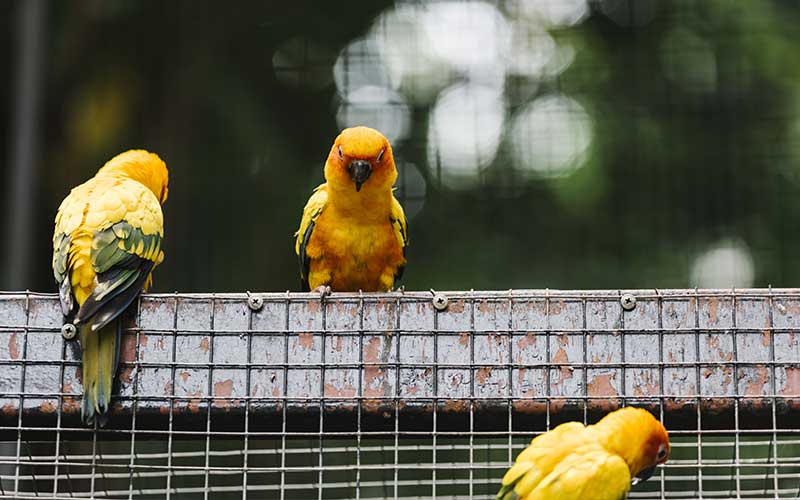
Selecting a healthy bird is crucial for ensuring its well-being and longevity. A healthy bird will exhibit several key characteristics that indicate good health. Let’s explore these traits in detail and how to identify them.
Physical Appearance:
- Shiny Eyes: Bright, clear eyes are a hallmark of good health. Cloudy or dull eyes can be a sign of underlying illness.
- Shiny and Uniform Feathers: A bird’s feathers should be smooth, shiny, and free from any visible parasites or bald spots. Healthy feathers are essential for maintaining body temperature, insulation, and flight.
- Clean Beak and Strong Legs: A clean beak without any excessive buildup or deformities is a positive indicator. Strong, sturdy legs are also indicative of good health and proper development.

Behavior:
- Active and Curious: A healthy bird should be alert, active, and curious about its surroundings. Lethargy or excessive sleeping can be a sign of illness or discomfort.
- Eating and Drinking Easily: A bird should eat and drink readily without any difficulty. Reduced appetite or excessive thirst can be a cause for concern, as it may indicate a variety of health issues.
Additional Considerations:
- Origin: If possible, choose a bird from a reputable breeder or a reputable pet store. This will increase the likelihood of obtaining a healthy bird that has been properly cared for and raised in a safe environment.
- Age: Young birds are generally healthier and easier to tame. However, older birds can also be healthy and rewarding companions. It’s important to assess the bird’s overall condition and behavior regardless of age.
- Species: Some species of birds are more prone to certain health problems. Research the specific needs and health issues associated with the breed you are considering. This will help you provide appropriate care and prevent potential health problems.
When to Consult a Veterinarian:
If you notice any of the following signs in your bird, it’s important to consult a veterinarian promptly:
- Lethargy or weakness
- Excessive scratching or preening, which could indicate the presence of parasites or skin irritation
- Difficulty breathing, which could be a sign of respiratory problems
- Loss of appetite, as decreased appetite can be a symptom of various illnesses
- Diarrhea or constipation, which can indicate digestive issues
- Changes in behavior, such as aggression, excessive vocalization, or withdrawal

By carefully considering these factors and consulting with a veterinarian, you can increase your chances of selecting a healthy and happy bird companion. Remember, providing appropriate care, a healthy diet, and regular veterinary check-ups are essential for maintaining your bird’s well-being.
Comments